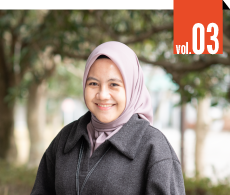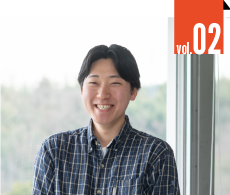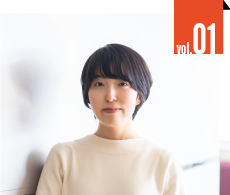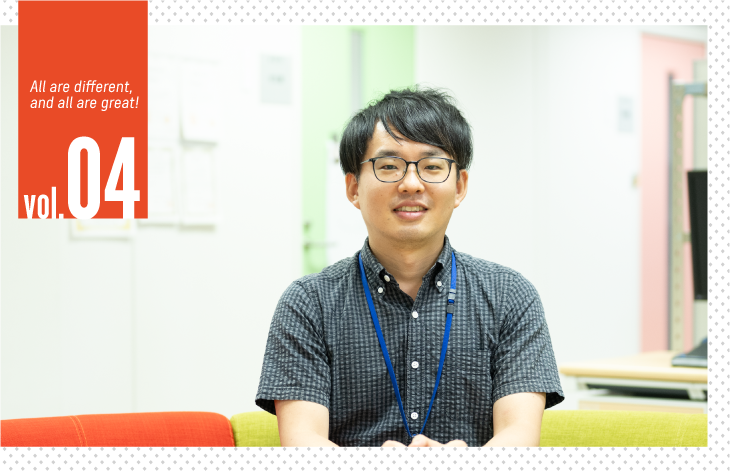
![]()
Wataru Hatanaka
Information Science
Robot Learning Matsubara Laboratory
Academic year: 3rd year of Ph.D.
Place of birth: Japan, Osaka
Undergraduate research: Image Processing
Graduate research: 3D image recognition
Before joining NAIST and my current research
I became interested in programming when I entered university, and specialized in image processing during my master's program. At that time, I was not interested in pursuing a Ph.D. program, and after graduating, I joined the research department of Ricoh Company Ltd. When I started working there in 2012, web conferencing was being developed as a dedicated device rather than the currently popular software such as Webex or Zoom, and I was initially involved in the development of a videoconferencing system. Both voice and image are signal processing, and we were working on combining them. When I had the opportunity to propose a new project, I suggested robots, which was accepted, and we started researching and developing robots from scratch in 2013.
In 2020, a paper I wrote while at the company was accepted for an international conference, and the company suggested that if I was motivated, I should go to the Ph.D. program, which I did after discussing it with my supervisor. I enrolled in April 2021, but did not take a leave of absence from my company as I was allowed to carry out research activities while receiving financial support as part of my work. I therefore belonged to a NAIST research laboratory as a working student. For the first six months after enrolling, I attended classes and regular meetings remotely from Kanagawa Prefecture, where the company is located, and in September I moved to Nara with my now four-year-old child and wife. I attend company meetings remotely from home, while coming to the university about three times a week.
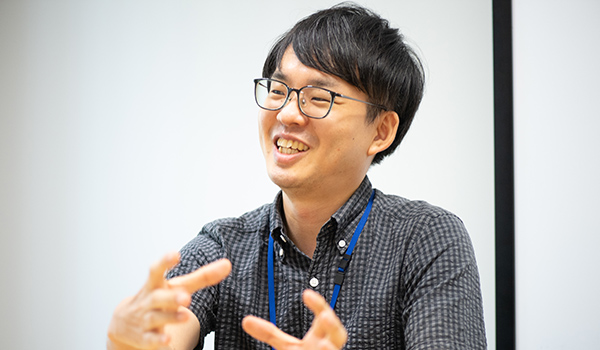
I decided to become a working Ph.D. student because the company advised me to look outside Ricoh to find and improve my core skills, as research and development in the field of robotics is an area of great opportunity for Ricoh. There are other people currently enrolled in Ph.D. programs at other universities, but it is not the case that Ricoh consistently sends people to graduate school every year. I believe that this is only possible when the timing is right, such as when there are people who are willing to go to a Ph.D. program, and when there is support from the company supervisor.
Current research life and research environment
The reason why I went to the Matsubara lab at NAIST was because it was the only lab in Japan that was working on deep learning technology related to robot applications with a clear focus on "robot learning". When I discussed this with my supervisor, he happened to set up a meeting with Professor Matsubara, who was in the same research group at the conference, and I was able to get in.
I am currently researching reinforcement learning for robots. My research topic was determined through discussions with Professor Matsubara, keeping in mind that the results would be reflected in the company's business while also providing academic value.
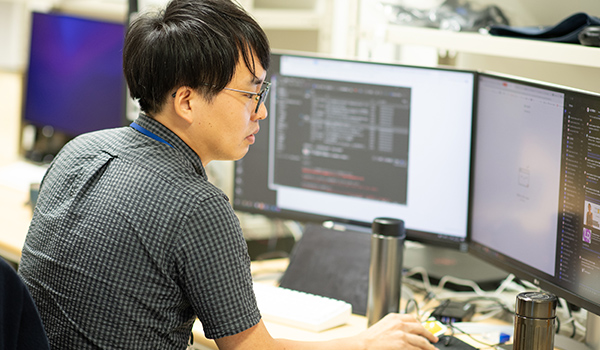
I came to Nara from Kanagawa half because I wanted to do research closely with the professor and the other half because I wanted to build relationships with the students. NAIST has many excellent students, so the company probably hopes that my presence will be a link to the students, and I myself have a feeling that we might be able to collaborate in the future. While I have a lot of opportunities to talk to Ph.D. students, I don't have that much contact with master's students. I work from 9 am, but this laboratory does not have core hours, so usually when I come to the laboratory at that time there are no students. Currently, I am the only working Ph.D. student in the lab, and I think I have to do my best in terms of communication, because I think there are some areas where students might feel uncomfortable talking to me.
As for the research environment, I mainly do simulation experiments on my PC, and the computing resources are sufficient so that I do not feel that there are any problems. If I had to say, I would say that it is difficult to properly switch between the company network and the NAIST Mandala network when handling data. There is special software to connect to the company network when viewing information that can only be stored in the company, but it is complicated to reconnect with the network. This is unavoidable for security reasons, but there is also the difficulty of sorting out where the data is stored each time, even though I belong to both NAIST and my company.
In terms of the environment outside of research, Nara is a good place to raise children because the land is large and there are traditional things such as large squares and historical sites. This is an unexpected, good thing for me, but my wife says she also feels that the administrative services for child care are good. I think Nara is a good place to raise children.
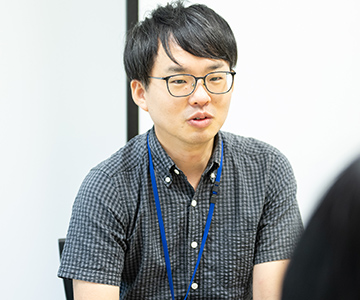
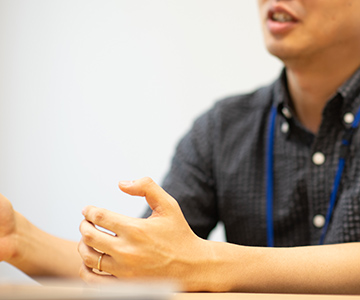
Accepting working students into Graduate school
There is no community of working students on campus. There were some working students who had already finished their studies in the Matsubara Lab when I joined. However, due to the Corona pandemic, they attended meetings remotely, and the only time I actually met them was at their thesis presentations.
I think there are problems that are unique to working students, such as how to balance corporate work and research activities as a student. I heard that the previous alumni also had a difficult time. I think it would have helped if there had been a community of working students, a connection where we could share things with each other.
I also think that it is not always possible to do research as smoothly as you would like. My supervisor is concerned that I might have a lot on my plate if I am here alone, so I have a supervisor looking after me remotely. I also talk a lot with Professor Matsubara about things other than research, and we talk about childcare and exchange information. I feel grateful to be able to have such conversations outside of research.
Once a year or so, I have a formal meeting with my supervisor and Professor Matsubara to share my research activities for the year, but I think it would be good to have other opportunities for more informal exchanges. For example, it would be mutually beneficial if there were an informal meeting between companies and universities where we could openly exchange opinions rather than technical advice, such as how frontline researchers feel about social situations like the recent rise of Chat GPT, or how companies perceive such technologies. I think it would be mutually beneficial. I have the opportunity to have a casual exchange with my professor through research, and I feel that this is only possible because I am actually in Nara, not remotely. I am sure that there are many challenges to realizing this, such as the difficulty of handling information in a less formal setting, but I believe that this kind of mutual exchange can lead to more practical knowledge sharing and applications in the real world. If such a cooperative relationship can be established, the importance of accepting working students into graduate schools will also become clearer.
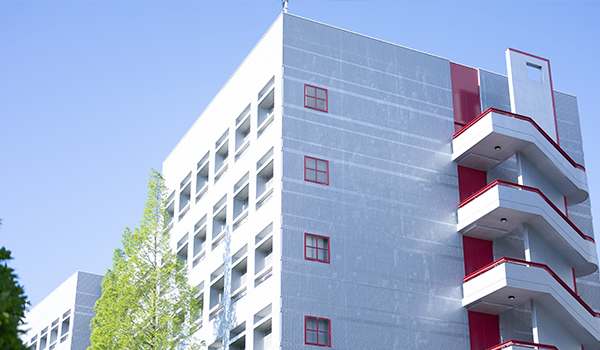
(August 2023)







